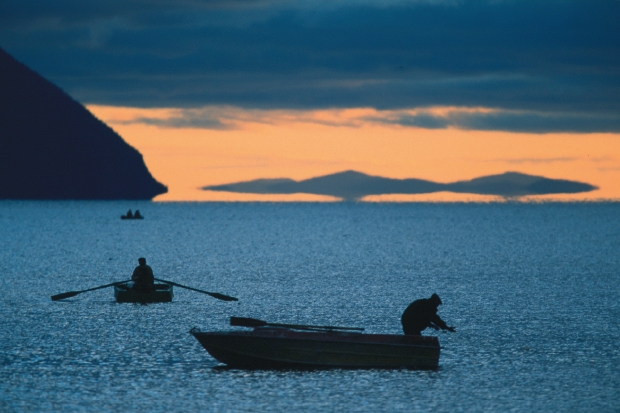In 2014, Beijing and Moscow signed a US$400 billion deal to deliver Russian gas to Chinese consumers. Construction of the Power of Siberia pipeline began last summer on the banks of the Amur river, known in Chinese as the Black Dragon river. It marks a rapprochement between two powers who have warily eyed each other across the frigid water of the Amur, which forms the border, for more than three centuries. According to Beijing’s man in Moscow, ‘China and Russia are together now like lips and teeth.’
In Black Dragon River, Dominic Ziegler attempts to explain how they got there. Following the 2,826-mile course of the Amur, the world’s ninth-longest river, the Economist’s Asia editor unravels the complex history of a vast region peopled largely by nomadic tribes but long dominated by the great empires of Mongolia, China and Russia. It is a fascinating story that begins with the rise of Genghis Khan, takes in Russia’s eastward push over the Eurasian landmass, and follows the rise and fall of the Manchu empire. These historical shenanigans in a remote corner of the world, Ziegler contends, are a key to understanding the complex relationship between Russia and China today.
The critical date, etched into the Chinese consciousness, is 1689. That year, envoys of Peter the Great and the Kangxi emperor met near a tributary of the Amur to delineate the land border between the fledgling Russian and Manchu empires. The Treaty of Nerchinsk, China’s first with a western power, allowed the Kangxi emperor to lay the foundations of a Chinese empire unmatched in reach before or since. Crucially, it was negotiated with strict equality — in contrast to the ‘unequal treaties’ humiliatingly forced on the crumbling Qing dynasty by European powers two centuries later. Even though Russia went on to grab an area of land from China the size of France and Germany combined during the height of its imperial expansion, Ziegler argues that Nerchinsk ‘tempers relations between the two powers to this day’.
In truth, Russia’s annexation of ‘Outer Manchuria’ in 1858–60 was only matched for sheer egregiousness by Japan’s incursion into Manchuria 70-odd years later. Under Tsar Nicolas I, the Amur River came to be seen as a site for national redemption — a repository for national myth-making akin to western Europe’s New World fantasies. The Amur was Russia’s Mississippi, the region its very own ‘Wild East’. ‘Russians looked out at Siberia and saw America,’ says Ziegler. Beijing may not condemn Moscow for its historical actions, but the fear haunting the Russian Far East is that it is only a matter of time before China takes back what it lost.
Today’s anxious inhabitants are the ancestors of a motley crew of migrating Cossacks, revolutionaries, peasants and convicts. A tale of cruelty, violence and suffering, Russia’s eastward expansion began with a rush for the luxurious ‘soft gold’ of Siberian sable, worn by the elegant ladies of St Petersburg, and the thick, sleek pelts of sea otter preferred by Chinese customers. Then, before the discovery of today’s ‘black gold’ of oil and gas, explorers found the real thing. Enterprising smugglers blew gold dust up the nostrils of Chinese corpses being returned to their homeland for burial.
The book is at its best when Ziegler takes to the road, meeting a ragtag of soldiers, drunks and gold-toothed babushkas. Most memorable is Andrei, a shaven-headed ex-con whose arm is tattooed with a naked woman astride a giant penis. After a stunt that involves lobbing rocks over the walls of Nerchinsk prison, the encounter ends with Ziegler, handcuffed and behind bars, being investigated by the FSB and urged to flee the town mafia. It is intrepid stuff.
Some of the writing is superb. Putin’s tour along the new Amur Highway is likened to that of a strutting alpha dog ‘cocking a leg to mark his stops’. On the Mongolian steppe, ‘The grasshoppers and crickets fizz just as they did in high summer, but the khaki grasses rustle underfoot like old parchment.’ To the south, the Gobi is ‘not smooth and billowing as the mind conjures a picture-perfect desert to be, but gnarled and pockmarked with rifts and rocky excrescences, a
checkerboard of mineral tones, verdigris and dull purple, salt lakes and cloud shadows’.
My only gripe is the bewildering noodle bowl of peoples and places. Russians, Mongolians, Manchus, Chinese — fine. But keeping track of Evenki, Yakuts, Buryats, Nivkh, Daurians, Dzungarians, Altaians, Nani, Solons and Ulchi without a glossary is a slog. And when we stray too far from the Amur and deep into the tides of history, the narrative loses its flow. With sharper editing, a few decent maps and a photo or two, the empty Siberian wastelands would have been much easier to navigate. But these are minor complaints: a true labour of love, Black Dragon River is a triumph.






Comments